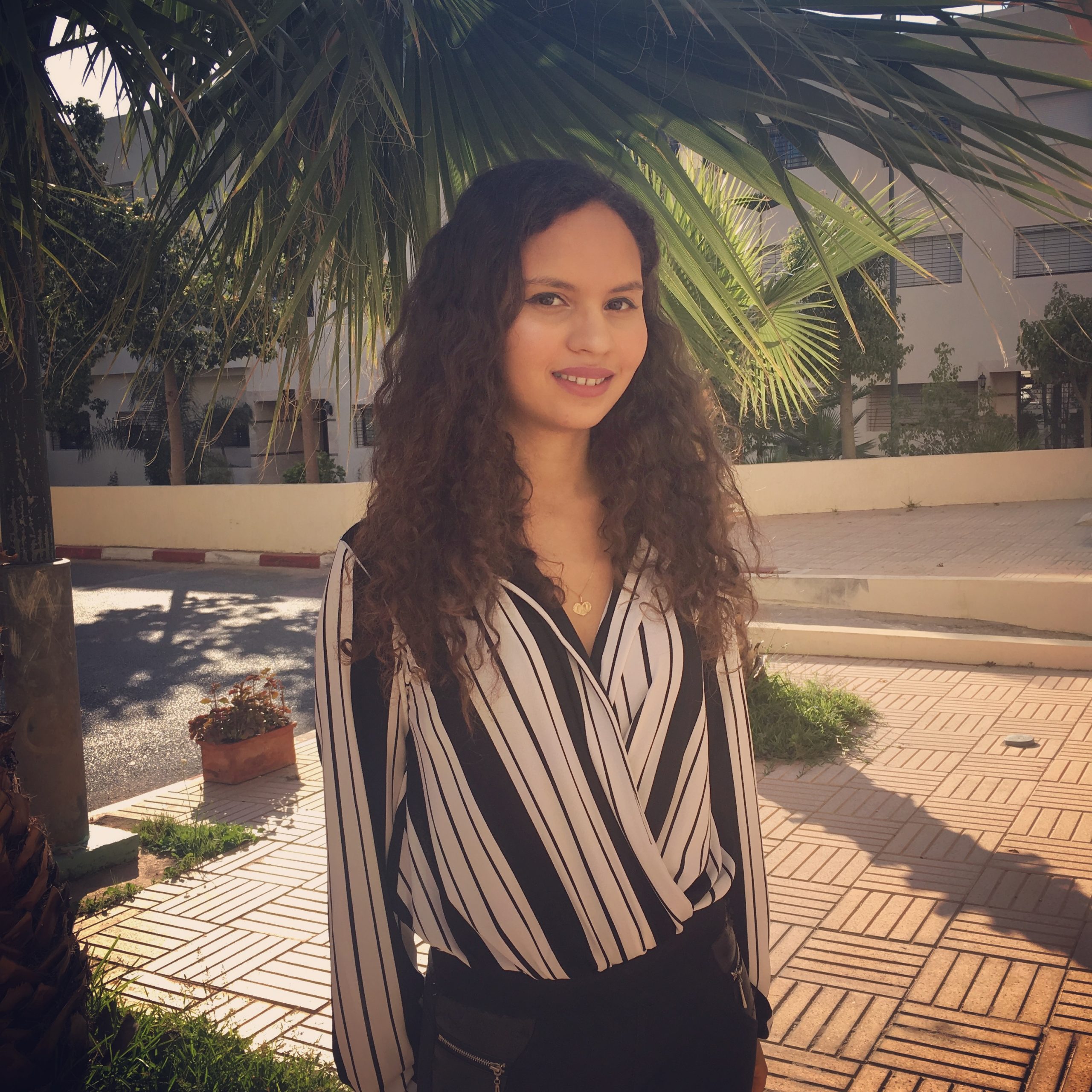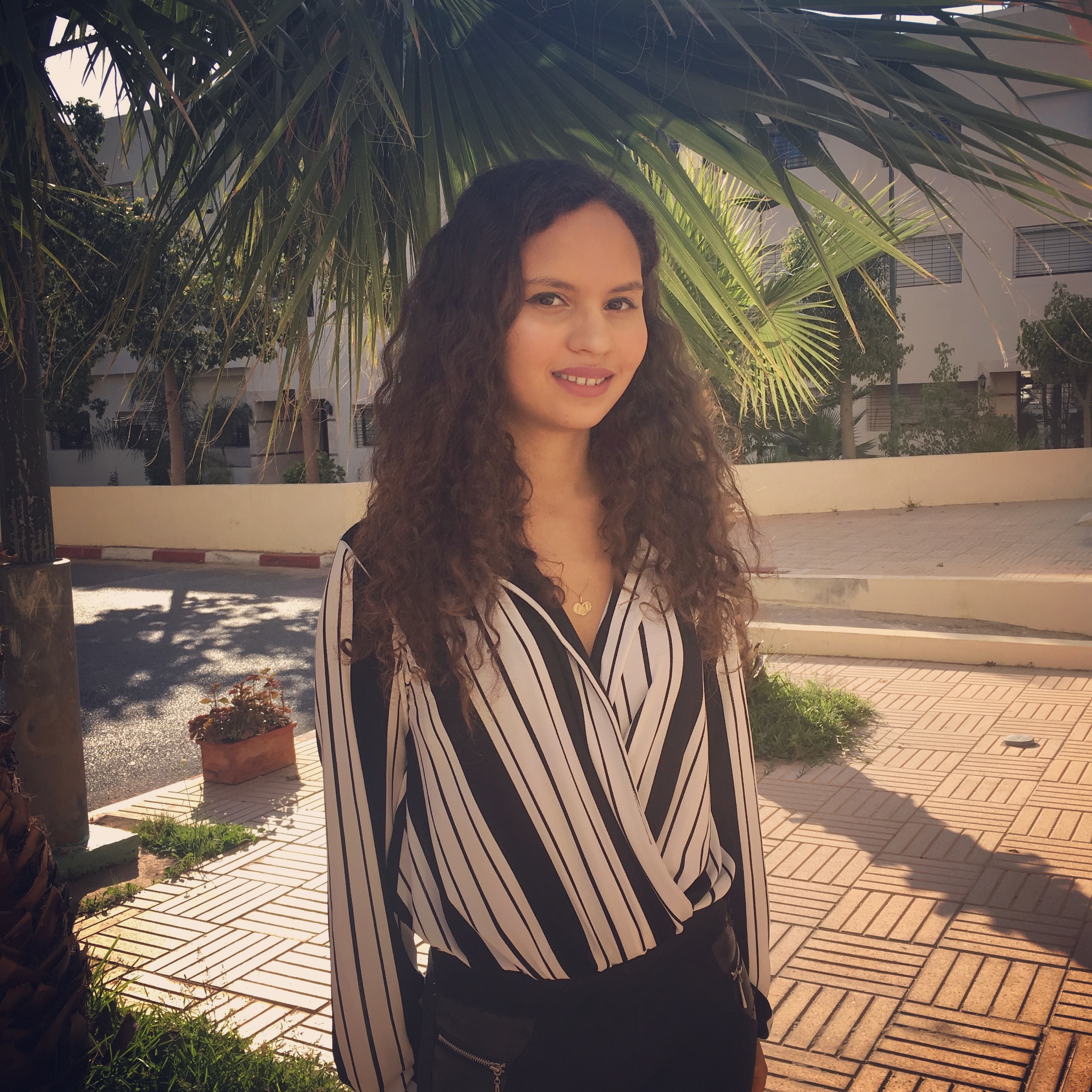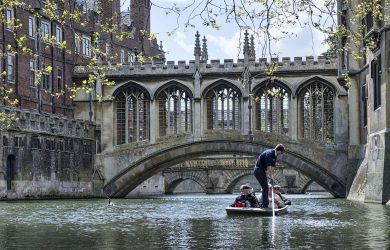
Salma Daoudi will become the first Gates Cambridge Scholar from Morocco when she starts her MPhil in the autumn.
I am interested in understanding the political interests at stake and how a failure to address the root causes of health issues leaves the most marginalised more trapped in a cycle of poor health and poverty.
Salma Daoudi
Salma Daoudi is interested in exploring social and economic rights as basic human rights and in how issues such as access to health and education get little attention because those most affected by them lack a political voice.
Her undergraduate dissertation was on how political power structures can impact how certain infectious diseases – tuberculosis, HIV and Ebola – are treated and can perpetuate structural violence against the most marginalised. “I was interested in understanding the political interests at stake and how a failure to address the root causes of health issues left the most marginalised more trapped in a cycle of poor health and poverty,” she says.
HIV was the first health issue to come before the UN Security Council and to be treated as a threat to peace and security. Salma is interested in how health policy became driven by fear rather than human issues – the fear that disease could create greater instability through increasing poverty and fuelling social unrest and that terrorists could use it to their advantage.
Salma, who is the first Gates Cambridge Scholar from Morocco, plans to continue her focus on health and biosecurity when her MPhil begins in October.
International relations
Salma was born in Rabat to two civil servants. She read a lot as a child, especially in French and English. Her parents were keen for her to learn languages to get a broad outlook on the world. She was drawn towards social sciences and languages because of her interest in understanding the world.
Salma attended a private high school at the time of the Arab Spring. Social sciences helped her to understand what was going on and gave her the tools to construct her own view of the situation. “There was change everywhere, not just in the region generally but in my own country. It was a really interesting time. It wasn’t just a historic event. We were participating in the democratisation process. It made me question a lot of things,” says Salma.
As she finished school, Salma was considering going to medical school. She spent the summer deliberating between medicine and international relations. She figured doctors could save many lives, but that addressing issues such as access to healthcare and education and gender equality could save many more.
So she applied to Al Akhawayn University, the only university in Morocco whose curriculum was in English because she wanted to eventually study in the UK, because of the quality of the teaching staff and because of the university’s exchange programme. Salma majored in International Studies for her four-year degree, taking a particular interest in international cooperation and development and business administration.
In her third year she spent a semester at Binghamton University in the US which gave her a different, broader perspective on world politics. A lot of the theories she studied in the US addressed the situation in North Africa and she was the only student with “insider information”.
At the end of her third year Salma did an internship at the Moroccan Ministry of Foreign Affairs and International Cooperation where she worked on global multilateral issues with the UN and UN Development Programme. “I was interested to see how Morocco works with international actors to develop and empower Moroccan communities who are vulnerable due to their socio-economic conditions. Working there helped me to understand Morocco’s position and how it is trying to strengthen cooperation with several countries to promote human rights for everyone,” she says.
The experience also helped her choose her dissertation topic.
Social activism
As she was finishing her degree Salma applied to Cambridge to do an MPhil in International Relations and Politics. She will be based at Lucy Cavendish College. She was interested in the university’s focus on international law and security and the politics of the MENA region.
She was immediately drawn to Gates Cambridge with its mission of empowerment and focus on community development and social civil engagement. They are values she shares and which prompted her social activism. Salma did an internship at an association in Rabat two summers ago which involved teaching refugee children who could not attend school. “It was about helping the children get back to school and how education is a path to development, social mobility and empowerment,” says Salma. She has also worked on a project which involves improving disadvantaged families’ access to renewable energy so their children can study and has worked with high school students to educate them about the UN and give them the skills and confidence they need to develop a critical mindset about international relations issues.
Salma is looking forward to beginning her master’s and to deepening her knowledge of biopolitical issues and of how failing to provide for the right to health in complex civil war humanitarian emergencies in the MENA region constitutes an emerging security threat.

Salma Daoudi
- Alumni
- Morocco
- 2018 MPhil International Relations and Politics
- Lucy Cavendish College
Born and raised in Morocco, I developed early on an interest for politics and international relations, especially as the Arab spring unfold in neighbouring countries. In order to gain a deeper understanding of how development issues can threaten regional and global security, I majored in International Studies at Al Akhawayn University to study and research the development-security nexus. After a semester spent at Binghamton University and an internship at the Moroccan Ministry of Foreign Affairs and International Cooperation, I particularly developed interest for biopolitics and the interrelation between health and security, which has been the main focus of my undergraduate capstone research. During the course of my Mphil in International Relations and Politics at the University of Cambridge, I seek to further deepen our understanding of how failing to provide for the right to health in complex civil war humanitarian emergencies in the MENA region constitutes an emerging security threat. I want my academic research to embody my engagement towards global development and equity, which I have developed while serving the social missions of clubs such as Rotaract and volunteering to tutor refugee children in Morocco. Besides, I also enjoy reading, traveling, and writing fiction. I am honoured to join the Gates Cambridge community, and look forward engaging in an as stimulating as inspirational journey towards improving others’ lives.
Previous Education
SUNY Binghamton
Al Akhawayn University












